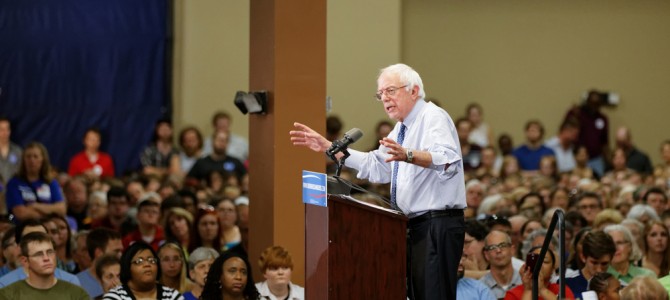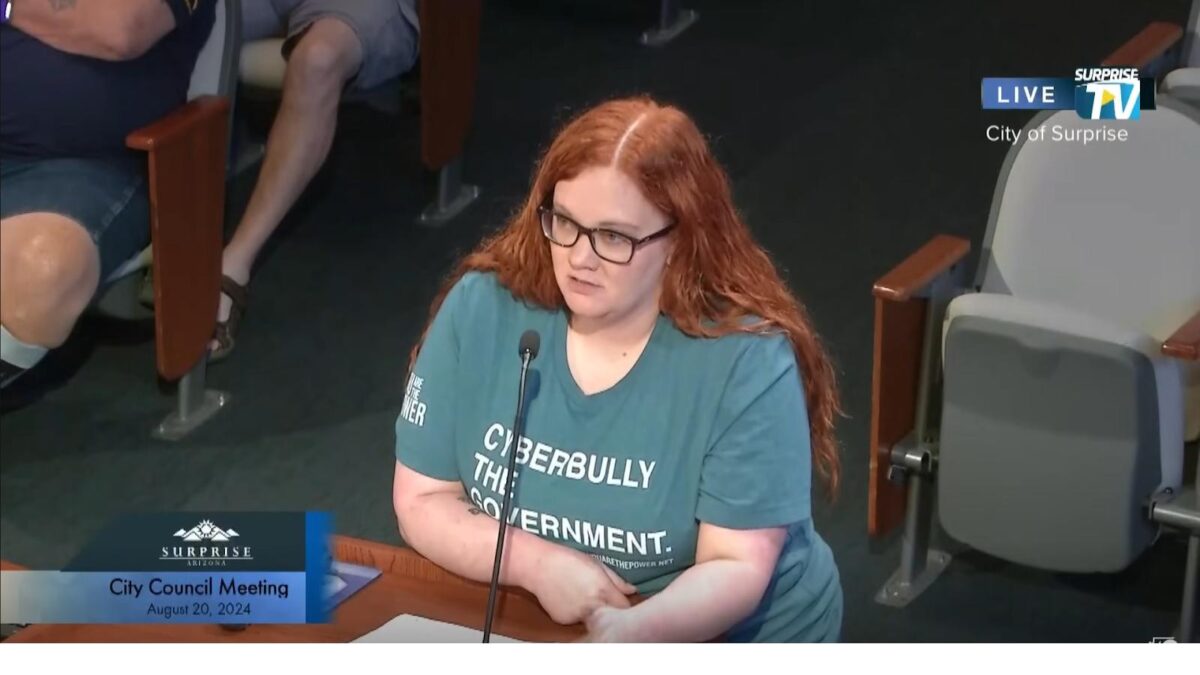
Bernie Sanders applied for conscientious objector status during the Vietnam War. Although his application was ultimately rejected, by the time that happened he was 26, and no longer eligible for the draft. So, for all intents and purposes, Sanders’ application ensured he would stay safe at home.
This has not been a big issue in the campaign, nor should it be. Sanders’ views have since changed, and he is no longer a pacifist; but, assuming his youthful application was sincere, he was simply exercising his religious freedom.
As early as the American Revolution, citizens whose religious beliefs reject violence in all cases have been granted accommodations and have not been forced to fight. The guarantees of religious freedom in the First Amendment solidified the right to refuse combat service owing to deeply held moral beliefs. In the 1965 Seeger decision, the Supreme Court extended conscientious objector status to pacifists whose beliefs were not based on any orthodox religion.
All of this leads to an intriguing question: if Sanders didn’t have to fight in Vietnam because of his beliefs, why do business owners have to participate in gay weddings in spite of theirs?
The First Versus the Fourteenth Amendment
The Left argues that conscientious objection differs from participation in gay weddings, based on a conflict in the latter between the first and fourteenth amendments. A gay couple has a Fourteenth Amendment right to equal protection, while the wedding cake baker has a First Amendment right not to violate his religious beliefs. Liberals side with gay couple by favoring equal protection over religious freedom, or a negotiated accommodation for both.
But conscientious objection contains a similar constitutional quandary. Freedom of religious expression forbids the government from forcing a person to violate his or her pacifist beliefs. But the Establishment Clause forbids the government from rewarding or punishing any set of religious beliefs. When a pacifist refuses to fight, somebody else has to, and that person is being burdened as a result of their religion (or lack thereof).
When Sanders applied for conscientious objector status, he did so knowing that another person would have to fight specifically because his religious, or moral beliefs did not exempt him from service. So why does Sanders believe that a pacifist’s moral beliefs must be protected even if it burdens others, while a Christian can be compelled to violate his or her beliefs specifically because it burdens others?
Let’s Burden the Majority, But Not Minorities
The answer to this question lies not so much in legal vagaries as in a misconception many Americans hold about the purpose of constitutional rights. There is general agreement that the First Amendment exists to protect religious minorities. But when applied to mainstream Christianity, many of these same Americans argue that social justice trumps free religious expression.
For progressives, government exists less to protect individual rights than to achieve just outcomes. Whether it is free speech (Citizens United), the Second Amendment (gun control), or religious freedom (florists and bakers), the Left values social outcomes above natural rights. Given this, mainstream Christian belief stands athwart social progress in ways minority religious beliefs do not. The actions of the handful of Quakers, Amish, or Christian Scientists have little effect on society as a whole. The actions of millions of mainstream Christians have quite a large effect.
While it’s true that the American concept of religious freedom exists in part to protect vulnerable religious minorities, that is by no means its only or most important purpose. Many of the original English settlers in America were escaping religious persecution. Some of them, in states like Pennsylvania and Maryland, jealously guarded the rights of religious minorities. Others, such as those in Massachusetts, did not. But nowhere were religious minorities granted a protection to worship and practice that the majority religion was not granted.
The Bill of Rights is not H.L. Mencken—it does not exist to comfort the afflicted and afflict the comfortable. It exists to ensure that the natural rights of all Americans are not violated. There is no justification for treating the religious freedom of the dominant religion in our society any differently than we treat any other religious group. Increasingly, however, we are doing so. This is why nobody is forcing Muslim or Orthodox Jewish bakers to participate in gay marriages.
Can’t We Go for a Win-Win?
Former pacifist Sanders is not the only Democratic candidate whose past belies his current views on Christians’ constitutional rights. It was Hillary Clinton’s husband who signed the Religious Freedom Restoration Act. That bill, once championed by the Left, compels the government to use the least restrictive means possible when forcing an American to violate his or her religious beliefs. Basically, it says if an accommodation can be made, the government must make it.
Assuming Hillary Clinton agreed with the original RFRA, she should argue that Christians cannot be forced to participate in gay weddings if less restrictive means are possible. It is not at all clear this is her position today. Tellingly, the 1993 bill was crafted in direct response to a Supreme Court case concerning the religious liberty of Native Americans, a religious minority.
The current progressive penchant for burdening the dominant culture in ways it does not burden cultural outliers is based on an assumption that that very dominance acts as a protective force. They view mainstream Christian beliefs as inherently protected by its majority status. But there is a paradox here, because they also insist, rightfully, that the United States is not a Christian country. Essentially, they treat Christian practices as inherently protected by what they perceive as its dominant status. But, in fact, Christian practices, like all other religious practices, are only protected by the First Amendment, not by custom, which is subject to constant change.
What’s Good for the Goose Is Good for Sanders
Religious freedom is arguably under the greatest threat it has ever endured in our country’s history. The freedom of Christian practice unquestionably is. On the Left, one-time champions of religious liberty have thrown it under the bus of equal outcomes. On the Right, the rise of corporatism and the libertarian movement has moved religion from its central position to a bothersome side issue that many roll their eyes at.
These threats are dire. There is good reason to believe that religious schools are soon to be inundated by regulations that strike at the heart of their missions. From gay rights to trans rights and beyond, our secular society is beginning to encroach on the freedom of religions and their practitioners. Religious hospitals and adoption agencies risk, and in some cases already are being stripped, of rights that for centuries were sacrosanct.
This is one of the most important conversations confronting our nation. It must be had. A good place to start is with Sanders. Decades ago, back when the Left still believed in religious liberty, he took advantage of one of its most accommodating protections. Today, he wants to strip others of protections he once enjoyed. As a presidential candidate he must explain why what was good for him isn’t good for today’s Christian Americans.









